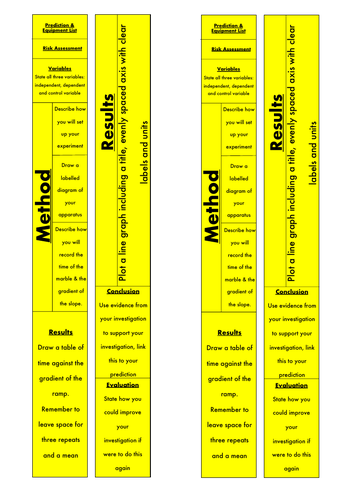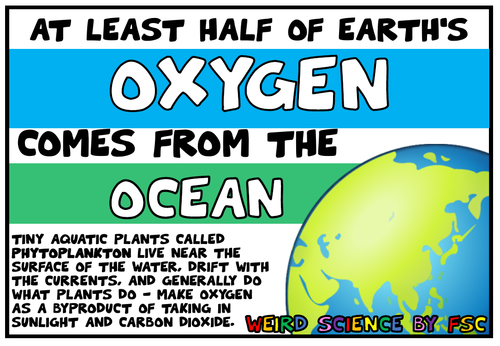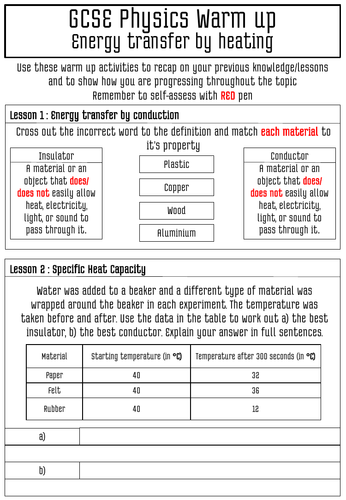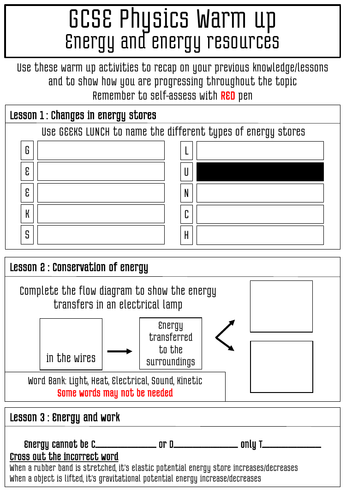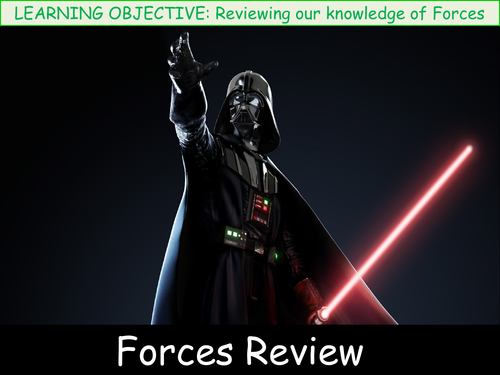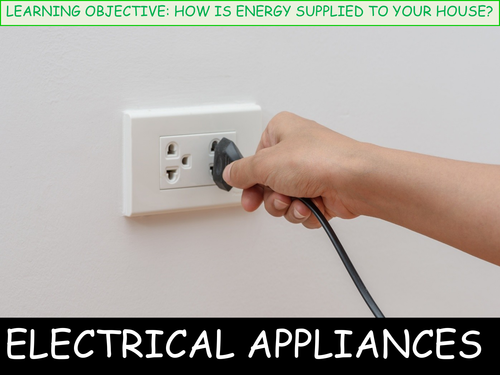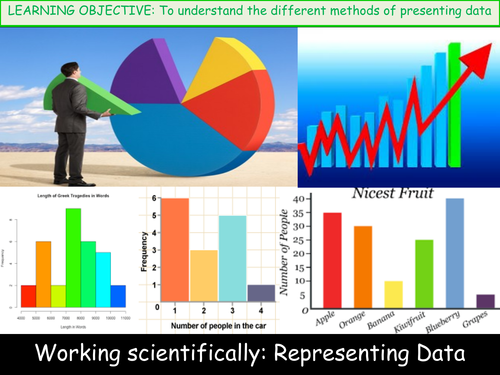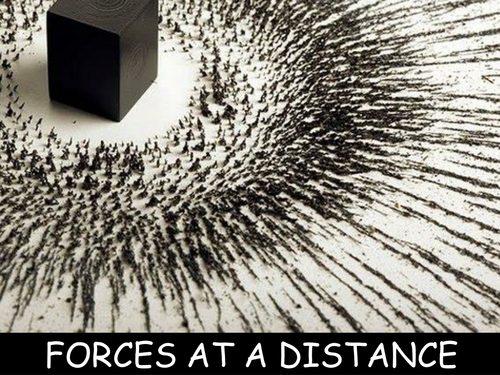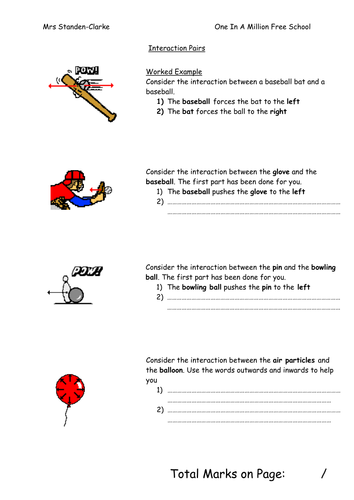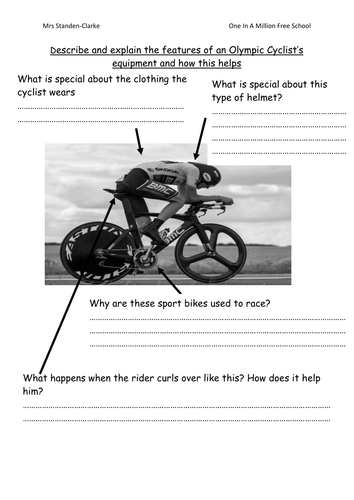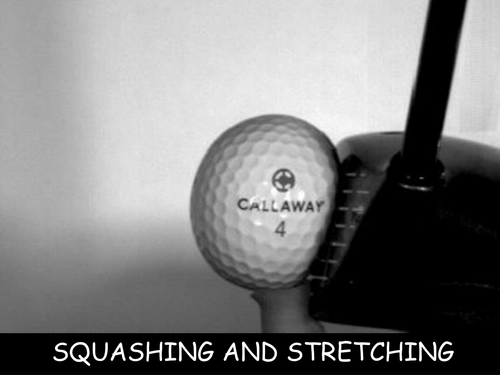
45Uploads
36k+Views
17k+Downloads
Physics

KS3 Motion and Pressure - Ramp Speed Practical Write Up
Designed to give students the ‘ideal’ structure of a scientific write up, it provides students with a format for what to include in each section, along with tips and success criteria. Also provided with an edited marking rubric which can be used as teacher feedback; however it is suitable to use as a peer marking grid
Each page has two copies which can printed and stuck in to the margin of the student’s book. The two sheets combined create a well structured and informative double page science write up.

Weird Fact Science Posters Pack 2 - 15 POSTERS INCLUDED
Inspire your students with weird and wacky science facts. These can be used as a simple display or a starting discussion point if you wish. these are suitable for all ages but geared towards 11-16.
The document is formatted to print at A4.
All feedback is greatly appreciated.
More Poster packs are currently being designed.
PACK 1 AVAILABLE HERE:https://www.tes.com/teaching-resource/weird-fact-science-posters-pack-1-15-posters-included-11963275

Weird Fact Science Posters Pack 1 - 15 POSTERS INCLUDED
Inspire your students with weird and wacky science facts. These can be used as a simple display or a starting discussion point if you wish. these are suitable for all ages but geared towards 11-16.
The document is formatted to print at A4.
All feedback is greatly appreciated.
INCLUDES 15 Posters
More Poster packs are currently being designed.
Pack 2 AVAILABLE HERE: https://www.tes.com/teaching-resource/weird-fact-science-posters-pack-2-11963854

P2 Physics starters/Warmups
Starter activities for the entire topic of P2 GCSE Physics (AQA)
Topics included
Energy transfer by conduction
Specific Heat Capacity
Heating and Insulating Buildings
Resources produced to use the starter as a recap from the previous lesson.
Suitable for a catch up resource, or GCSE Physics revision
Bundle

Biology, Chemistry, Physics 1 starter tasks
Starter activities for the entire topic of B1,C1 and P1 GCSE Biology, Chemistry and Physics (AQA)
Sub topics include:
Biology
The world of the microscope
Animal and Plant Cells
Eukaryotic and Prokaryotic
Specialisation in cells
Diffusion
Osmosis
Osmosis in Plants
Active Transport
Exchanging Materials
Chemistry
Atoms
Chemical Equations
Separating Mixtures
Fractional Distillation and Paper Chromatography
History of the atom
Structure of the atom
Ions, atoms and isotopes
Electronic structures
Physics
Changes in Energy Stores
Conservation of Energy
Energy and work
Gravitational Potential Energy Stores
Kinetic Energy and Elastic Energy Stores
Energy Dissipation
Energy and Efficiency
Electrical appliances
Energy and Power
Resources produced to use the starter as a recap from the previous lesson.
Suitable for a catch up resource, or GCSE revision.

P1 Physics Warmups
Starter activities for the entire topic of P1 GCSE Physics (AQA)
Resources produced to use the starter as a recap from the previous lesson.
Suitable for a catch up resource, or GCSE revision.
Available as a bundle with B1, C1,P1

Force Review Activate 1 P1 Forces
This is the review lesson in the Forces topic of Activate 1, directed at a mixed ability Yr 7 Science class.
Can be used as a DIRT activity
The presentation includes a challenging question, support and extension tasks on all relevant slides. collaborative learning opportunities.
A worksheet document includes levelled questions and challenging section to stretch higher ability students.
Bundle

Activate 1 P1 Yr 7 Forces
This is a bundle of five lessons to cover the Forces topic of Activate 1, directed at a mixed ability Yr 7 Science class.
The presentations includes a challenge question, support and extension tasks on all relevant slides. collaborative learning opportunities.
All worksheets includes a worked example, scaffolded questions and challenging section to stretch higher ability students.
Success Criteria/ Learning outcomes included in each lesson
Please rate and comment on what you find useful so I can alter my lessons in future.
Many thanks

Active 1 1.5 Balanced and Unbalanced Forces
This is the fifth lesson in the Forces topic of Activate 1, directed at a mixed ability Yr 7 Science class.
The presentation includes a challenging question, support and extension tasks on all relevant slides. collaborative learning opportunities.
A worksheet document includes a worked example, scaffolded questions and challenging section to stretch higher ability students.
Success Criteria
To describe the difference between a balanced and an unbalanced force
Use a force diagram to say which way the object will move
draw a force diagram and say whether the force is balanced or unbalanced.
Stretching: To work our a resultant force on an object
Please rate and comment on what you find useful so I can alter my lessons in future.
Many thanks

Electrical Appliances
This is a lesson in P1 of Trilogy GCSE Chemistry, directed at a low ability Yr 10 Science class. There are some further activities to stretch learners.
The presentation includes support and extension tasks on all relevant slides. collaborative learning opportunities.
A worksheet included
Learning Outcomes:
To state the ways different appliances convert energy into useful sources
Evaluate appliances in their efficiency to perform a particular job
Calculate the percentage of energy wasted.
Please rate and comment on what you find useful so I can alter my lessons in future.
Many thanks

Working Scientifically: Representing Data
This is the second lesson in the Working Scientifically topic of Activate 2, directed at a mixed ability Yr 8 Science class.
The presentation includes a challenge question, support and extension tasks on all relevant slides. collaborative learning opportunities.
Success Criteria
To identify different methods of presenting data.
To plot bar charts and/or frequency diagrams accurately.
To plot scatter diagrams or line graphs accurately.
Please rate and comment on what you find useful so I can alter my lessons in future.
Many thanks

Working Scientifically: Using data in tables
This is the first lesson in the Working Scientifically topic of Activate 2, directed at a mixed ability Yr 8 Science class.
The presentation includes a challenge question, support and extension tasks on all relevant slides. collaborative learning opportunities.
A worksheet including an outline of a suitable table to scaffold those who will struggle with the drawing speed or EAL
Success Criteria:
To identify the most important aspects of a results table.
To understand how to organise data in a table format.
To analyse the data and suggest improvements.
Please rate and comment on what you find useful so I can alter my lessons in future.
Many thanks

Activate 1 P1.4 Forces at a distance
This is the fourth lesson in the Forces topic of Activate 1, directed at a mixed ability Yr 7 Science class.
The presentation includes a challenge question, support and extension tasks on all relevant slides. collaborative learning opportunities.
A worksheet on interaction pairs, where students have to decide the pairs acting on an object - includes a worked example, scaffolded questions and challenging section to stretch higher ability students.
Learning Outcomes:
Describe the effects of a field
Describe the effects of gravitational forces on Earth and in space
Appropriately use an equation to calculate weights
This is available as a bundle here:
https://www.tes.com/teaching-resource/activate-1-p1-yr-7-forces-11777264
Please rate and comment on what you find useful so I can alter my lessons in future.
Many thanks

Interaction Pairs Worksheet
This worksheet is designed to go along with Activate 1 P1.1 Introduction to forces. The resource increases with difficulty and has a "challenge" to really stretch your higher ability students.
There is a second version included without the scaffolding if learners need to further themselves.
Both versions include a worked example to demonstrate how to answer the worksheet and what to include.
Answers are included.

Activate 1 P1 1.1 Introduction to Forces
This is the first lesson in the Forces topic of Activate 1, directed at a mixed ability Yr 7 Science class.
The presentation includes a challenge question, support and extension tasks on all relevant slides. collaborative learning opportunities.
A worksheet on interaction pairs, where students have to decide the pairs acting on an object - includes a worked example, scaffolded questions and challenging section to stretch higher ability students.
Learning Outcomes:
State some simple objects and some forces related to them
Describe what is meant by an interaction pair
Explain what forces do to an object
Please rate and comment on what you find useful so I can alter my lessons in future.
Many thanks

Drag Forces and Friction Supporting Worksheet
Complementary worksheet to ideas on drag forces and friction - challenges students to think about the design of the equipment and the reasons why, alongside supporting students into giving suitable answers

P1 1.3 Drag Forces and Friction
This is the third lesson in the Forces topic of Activate 1, directed at a mixed ability Yr 7 Science class.
The presentation includes a challenge question, support and extension tasks on all relevant slides. collaborative learning opportunities.
A worksheet on interaction pairs, where students have to decide the pairs acting on an object - includes a worked example, scaffolded questions and challenging section to stretch higher ability students.
Learning Outcomes:
Identify when drag forces and friction occur
Describe the effects of drag forces and friction
Evaluate the forces of friction and drag on object and give reasons to change the forces acting.
Please rate and comment on what you find useful so I can alter my lessons in future.
Many thanks

P1.2 Squashing and Stretching
This is the second lesson in the Forces topic of Activate 1, directed at a mixed ability Yr 7 Science class.
The presentation includes a challenge question, support and extension tasks on all relevant slides. collaborative learning opportunities.
A worksheet on interaction pairs, where students have to decide the pairs acting on an object - includes a worked example, scaffolded questions and challenging section to stretch higher ability students.
Learning Outcomes:
Describe how forces deform an object
Explain how solid surfaces provide a support force
Apply Hooke’s Law to a practical investigation
This is available as a bundle here:
https://www.tes.com/teaching-resource/activate-1-p1-yr-7-forces-11777264
Please rate and comment on what you find useful so I can alter my lessons in future.
Many thanks

